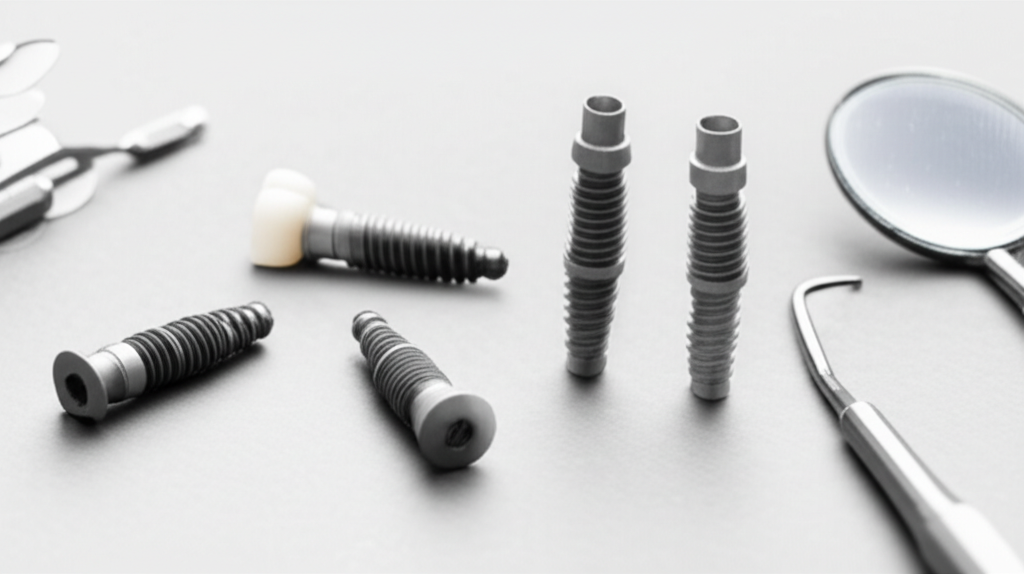
Does ODSP Cover Dental Implants? Understanding Your Ontario Dental Benefits
When it comes to fixing missing teeth, many people in Ontario hope the Ontario Disability Support Program (ODSP) will help pay for dental implants. The truth surprises most folks. This article will show you what ODSP covers, why dental implants are hard to get covered, what you can do if you really need them, and which alternatives actually work. If you want clear answers and real-life advice, you’re in the right place.
Table of Contents
Introduction: Why Dental Coverage Matters on ODSP
Let’s be real—having good teeth makes a big difference. You need them to eat, talk, and feel good about how you look. If you’re on ODSP, you probably wonder if your dental trouble, like losing teeth, can be fixed with dental implants. Lots of people ask: “Does ODSP pay for dental implants?” I’ve worked with folks just like you. That’s why we need clear, straight answers and to look at all your choices.
If you get ODSP or help someone who does, you probably don’t want fancy words or confusing steps. This article is easy to read. I’ll use plain English, tell stories, and show you real steps you can take.
What Does ODSP Dental Actually Cover?
ODSP, or the Ontario Disability Support Program, gives some dental help to adults with disabilities in Ontario. But there are limits, and knowing those limits can save you some headaches.
ODSP Dental Benefits Focus On:
- Preventive Care: Check-ups, cleanings, and fluoride treatments help keep your teeth healthy.
- Basic Fixes: Fillings for cavities, with either silver or tooth-colored stuff.
- Emergency Dental Work: Tooth removals can stop pain quick. If you have a bad infection or pain, you can get help.
- False Teeth (Dentures): If you’re missing lots or all your teeth, ODSP will pay for these, but only sometimes and if you need it for health reasons.
How the Process Works:
If your dentist thinks you need big work—like false teeth or a root canal—they send a “prior approval” paper to ODSP. You don’t always get a yes, but you might.
A Real Example:
Janet, one of my clients, needed full dentures. Her dentist sent in the paperwork and ODSP said yes in a few weeks. But when she asked for a dental implant, the answer was different.
Are Dental Implants Covered by ODSP?
Here’s the quick answer: almost never.
ODSP counts dental implants as big, pricey, and usually for looks. Because implants cost a lot—maybe $3,000 to $6,000 for just one tooth—the program does not usually pay for them.
Table 1: ODSP Coverage for Common Procedures
| Procedure | ODSP Coverage | Notes |
|---|---|---|
| Basic Cleaning | Yes | Twice a year recommended |
| Fillings | Yes | Back teeth usually silver only |
| Dentures | Yes (with approval) | Every 8-10 years, if you need them |
| Dental Implants | No | Only possible in very rare situations |
| Root Canals | Sometimes (approval) | Only some teeth, needs prior approval |
Why Doesn’t ODSP Pay for Implants?
Let’s break it down easy.
The Problem:
You’re missing teeth. Eating and talking is harder. Implants seem like a great fix. But you’re worried about the money.
Make It Worse:
Implants cost a lot—a whole row of teeth can be as high as $30,000! ODSP calls them “big fix” and “for looks.” ODSP is meant to help as many as possible with the basics, not pay for super costly jobs.
The Fix:
ODSP focuses on keeping you out of pain, able to eat, and looking after your mouth. That’s why false teeth and fillings get covered, but implants hardly ever do.
What Are Other Ways to Replace Missing Teeth with ODSP?
If you lose a tooth, ODSP doesn’t just turn you away. Here’s what it DOES help with:
- Full Dentures: If you lost all your teeth, ODSP pays for a set of fake teeth that can be taken out.
- Partial Dentures: These fill in empty spots, if you’re missing a bunch of teeth.
- Dental Bridges: Sometimes, not always, ODSP might help with a bridge (a fake tooth sits between two crowns). Usually needs a reason and approval.
Tip: If you need special denture work, places like a removable denture lab make teeth that fit just right.
Real-life story:
Michael lost his front teeth in a crash. He couldn’t get implants but did get a partial denture. It wasn’t perfect, but it made biting and smiling a lot better.
Is There Any Way ODSP Will Approve Dental Implants?
Here’s the twist—ODSP can pay for implants, but this is super rare. The only way is if you are in an “exceptional circumstance” where nothing else works.
For example:
- You have a strange medical problem where only implants will keep you healthy (like you were born with a big mouth problem or after a bad accident).
- All other choices, like dentures, don’t work or aren’t safe for you.
But let me be clear:
Even if you and your dentist send in all the forms, you’ll need letters from special doctors and strong proof. ODSP checks each case carefully. Nearly every request gets turned down.
What Happens In Exceptional Circumstances?
Say your case is really different.
Step 1:
Your dentist and probably a specialist (like a false teeth or mouth surgeon) look at your mouth. They write up why only implants will work for you.
Step 2:
The dentist sends all this info to ODSP, asking for “prior approval.”
Step 3:
The ODSP staff checks it all. They may ask for more records or want you to have another check.
The Truth:
Almost all requests for dental implants get a no, unless you have a super-rare medical problem. Most people get turned down.
Still, if your case is truly special, you can try. Sometimes, rare problems do get a yes. Talk it over with your dentist.
Alternatives to ODSP for Dental Implants
So, ODSP probably won’t pay for implants. What else can you try? Don’t lose hope. There are other ways.
Other Dental Help in Ontario:
- Ontario Seniors Dental Care Program (OSDCP): Helps older people with low income, but barely ever pays for implants.
- Community Dental Clinics: Some clinics help people with less money get cheaper teeth work.
- Dental Schools: Places like the University of Toronto Faculty of Dentistry let students work on your teeth for a lower cost.
Money Help:
- Charities and Dental Grants: Groups like Smiles Foundation sometimes help pay for teeth work, but don’t count on this.
- Payment Plans/Loans: Some dental offices let you pay small amounts each month.
- Tax Breaks: The Disability Tax Credit (DTC) and Medical Expense Tax Credit (METC) can help with some money back if you pay yourself.
Another Idea:
Dental implants come from top labs. A china dental lab can make good ones at a lower price, saving you money if you pay for yourself.
Step-By-Step: What Should You Do If You Need Dental Implants on ODSP?
Still with me? You need a plan. Here’s what you can do:
Step 1:
See Your Dentist. Ask them about every way to fix your missing teeth.
Step 2:
Ask About ODSP Benefits. Your dentist can see if you can get dentures, bridges, or something else paid by ODSP.
Step 3:
Try “Prior Approval.” If you truly need an implant for health reasons, ask your dentist to ask ODSP and help make your case strong.
Step 4:
Look at Other Choices. If ODSP says no, check out community clinics, dental schools, or payment plans. Sometimes a dental ceramics lab has fake teeth that look and feel real for less money.
Step 5:
Keep Trying. There’s often a way to replace teeth. If you need a whole row fixed, a crown and bridge lab might help your dentist make something in your price range.
Frequently Asked Questions (FAQs)
Q: Does ODSP cover root canals?
A: Sometimes. Front teeth root canals or when you need to save a tooth can be covered—but only if you get approval.
Q: How often can I get new dentures from ODSP?
A: Usually, every 8–10 years, if you really need them for your health.
Q: What is the “prior approval” process?
A: Your dentist fills out papers and sends a plan to ODSP. The Ministry says yes only if you meet their rules.
Q: Where can I find a dentist who takes ODSP?
A: Ask your local health unit, look up ODSP’s provider lists, or call dental offices.
Q: Are cosmetic dental procedures covered by ODSP?
A: No. ODSP pays only for work needed for health, not just for your looks.
Summary: Key Points to Remember
- ODSP hardly ever pays for dental implants. Implants cost too much and are counted as for looks.
- ODSP does pay for dentures and sometimes bridges. These work and cost less if you lose teeth.
- To get dental implants paid for, you need a special health reason. Most people get turned down.
- Other ways can help with costs. Community clinics, dental schools, and charities may help you get care for less.
- Stand up for your health! Stick with your dentist, check every money option, and look after your mouth.
Don’t forget:
You should have a healthy, nice smile, no matter your wallet or your problems. Don’t let the first “no” stop you—keep looking. Lots of people find a way every day.
Reviewed and approved by Dr. Joe Dental, DDS—expert in Ontario dental benefits and care for people with disabilities.






